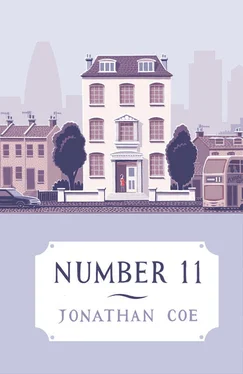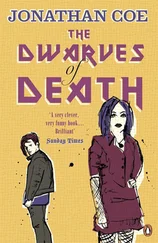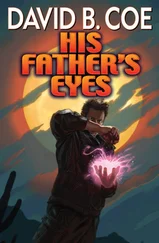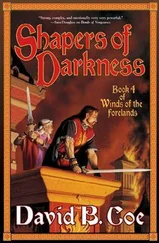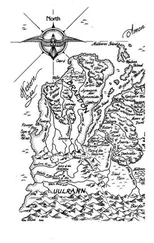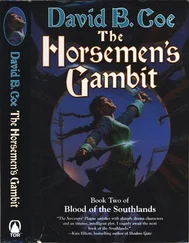‘So what are you going to do now?’ asked Alison, drawing the conversation back to practicalities.
‘I don’t know. Just wait and see, I suppose. I got some Teach Yourself Mandarin tapes from the library, so every day we understand each other a tiny bit more. And every day he seems to be remembering a little bit more, as well. He keeps saying this one thing, which for a while I thought was a word I didn’t understand, but now I think it’s somebody’s name: “Xiang”.’
At the sound of these two syllables, Lu turned again, and stared at Phoebe intently. His eyes blazed with urgency.
‘ Xiang ,’ he repeated. ‘ Xiang! ’
‘That’s right,’ said Phoebe. ‘You want to find him, don’t you? I’m going to help you.’
‘Find Xiang,’ he answered, nodding furiously.
‘My theory is this,’ Phoebe explained. ‘And it is only a theory. But: supposing he and this Xiang came over from China together — either legally or illegally, but in any case probably paying some dodgy character a small fortune to help them. At some point they get separated, maybe before Lu starts working for Sunbeam Foods, maybe after. Perhaps they both worked there together. Who knows? But obviously, if the company is based in Kent, and Lu has ended up here in Yorkshire, he and the other workers were being driven long distances all over the country to work on different farms. Supposing Lu decided he couldn’t take any more of this. So one night, maybe they were parked in some lay-by and getting a few hours’ sleep or something, he just slipped out and ran away.’
‘But he wouldn’t have gone without Xiang,’ I insisted.
Phoebe thought about this for a moment. ‘No, you’re right,’ she agreed. ‘They must have got separated ages ago. Maybe when they first arrived in the UK.’
‘Well, I do hope that he’s all right,’ I said, sitting up and finishing the last of my tea. There was a clock on the wall of the studio and I’d noticed that it was almost 2.30. Gran and Grandad would be home by now, and would be wondering where on earth we had got to. ‘Thank you very much for the tea, and for looking after me so well. But Alison and I should really be going home.’
Phoebe saw us to the front door.
‘Call again if you want to,’ she said. ‘I’m sorry we got off on the wrong foot. I didn’t mean to scare you in the woods, only I was a bit paranoid about finding those cards. I don’t think it would be a good thing if the police worked out that Lu’s here, so … do keep it to yourselves, won’t you?’
‘Of course we will,’ said Alison.
And then, just before leaving, I thought to ask: ‘What happened to your kestrel, by the way?’
Phoebe seemed taken aback. ‘How did you know that I used to have a kestrel?’
‘I saw you flying it once,’ I said, ‘up on Westwood. A few years ago.’
‘Tabitha …’ said Phoebe, musingly. Her eyes were briefly glazed with sadness. ‘I used to keep her in a shed out in the garden. But one night somebody got in. I never found out who it was. They strangled her.’
We both gasped. ‘Oh, that’s awful,’ Alison said. ‘Why would anyone do something like that?’
‘I don’t know. They were angry with me, I suppose, because Mrs Bates liked me, and left me this house. People are strange, very strange.’ She smiled now, and held out her hand for us to shake. ‘But now you’ve met me, and you know that I’m not as bad as people make out. Tell your grandparents I’m not this mad scary woman who goes round murdering old ladies. Spread the word.’
‘We will!’ I promised.
Then we both shook her hand vigorously, and I knew for the first time that I was not frightened of the Mad Bird Woman at all. But I also knew that I would never get used to the piercings all over her face, or the tattoos all over her neck and throat and around her eyes. Why would you disfigure yourself like that? What had inspired her to do it? I had a vague but deep-rooted intuition that it had something to do with the painting in her front room, that wild stormy wasteland and the menacing black house that overlooked it. But I was not brave enough to ask her, either then or later.
In fact we only ever saw Phoebe one more time.
When we got back to the house that afternoon, Gran and Grandad were already home, and didn’t even ask us where we’d been. I had never seen them looking so happy. Only now did we learn of the cloud that had been hanging over them that week. But all was well, in any case: Gran had been given the results of her brain scan and the doctor had told her that she did not have cancer after all. She had something called a meningioma, apparently: a benign tumour that was not too difficult to operate upon. The sense of relief, of thankfulness and light-heartedness, that pervaded the house from that moment onwards was so sweet and strong that we felt we could almost touch it with our fingers and taste it on our tongues. The house and garden seemed drenched in light.
On Thursday afternoon, our last full day in Beverley, all four of us went up to Westwood with a picnic. Gran and Grandad sat on the wooden bench that encircled the foot of the Black Tower; Alison and I laid out a couple of rugs in the sunshine, and gorged ourselves on fish paste sandwiches and Gran’s homemade chocolate cake. Afterwards, Alison lay flat out and closed her eyes and seemed to have fallen asleep. I sat upright and let the thoughts course through my head. I was looking forward to seeing my mother again, but also felt prey to a gentle, pressing melancholy at the prospect of leaving this place, which had come to feel so welcoming and familiar, so much like home. I remembered the first time I had sat here with my brother, some years ago, on a cold and grey afternoon in late October, the same afternoon on which, as dusk descended, he had played that nasty joke on me in the Minster. And then, just as my memory was calling up images of Phoebe pushing Mrs Bates’s wheelchair across the moorland, with her kestrel Tabitha perched on her arm, Phoebe herself appeared in the distance; approaching us, it seemed, from exactly the same spot, but now waving cheerfully in recognition. She came and crouched down beside us on the rug and I introduced her to Gran and Grandad, who (having already been given a carefully edited account of our visit to her house) half rose from their bench with instinctive politeness, and extended their hands to give hers a cautious shake, but never stopped looking uncomfortable in her presence.
Phoebe had come to say goodbye, but she couldn’t stay for long. She had something on her mind.
‘Lu disappeared,’ she told us. ‘I’m not sure when. I went down to find him yesterday morning and he was gone.’
‘We have to find him,’ I said. ‘Alison and I can help you. He won’t have gone far, surely.’
Phoebe shook her head. ‘I spent all of yesterday looking. I took the car out and drove for miles. But it wasn’t any use. There’s nothing much I can do now. I don’t think he would have gone unless he felt ready for it. He has some money, and he’s a lot stronger than when I found him last week. We just have to hope for the best.’
‘We’re going home tomorrow,’ Alison said. ‘You will write and tell us, won’t you, if you hear from him again?’
‘Of course,’ said Phoebe. But she never did.
Strangely enough it was Alison, out of the two of us, who kept in occasional contact with her after that. Phoebe’s paintings — in fact not just the paintings but the studio, the atmosphere in her house, her whole way of life, everything about her — seemed to have inspired Alison and from then on art became her passion. When her mother came back from holiday the next day she brought a new boyfriend with her, and before long Alison and her mother had moved down to Birmingham in order to live with him. From then on, of course, we hardly saw each other at all: but the events of that week in Beverley had created a bond between us which was not easily broken. I had begun by feeling indifferent towards Alison; then at one time, briefly, I had hated her; finally, we had come to be friends, and that friendship has strengthened and endured, now, over many years, despite absence and distance, despite the ways in which we have grown up and grown apart, and sometimes misunderstood each other.
Читать дальше
